PLOT DEVICES FOR SCI-FI / FANTASY WRITERS
T. E. Mark’s Blog
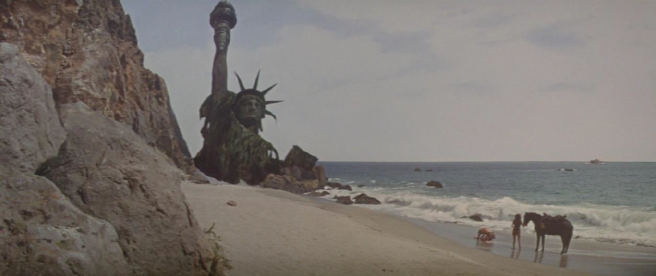
Post-Apocalyptic
Post-Apocalyptic novels, once a sub-genre in the Science Fiction and Fantasy, now warp shelves in bookstores and libraries. Though the plots vary, the reasons for the Apocalypse, except for a few noteworthy exceptions, typically don’t. If it wasn’t a thermonuclear war that splashed away the bulk of humanity, leaving just a sampling for a merry little story of bleak desolation, most mutated and deranged to some degree, it was a bio-terror agent, an untimely plague, asteroids, or those blasted computers.
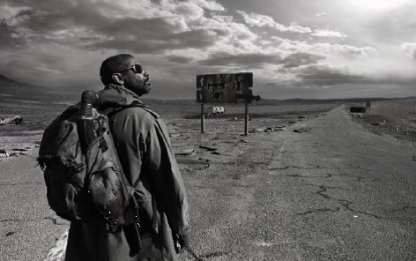
So, how will you explain your ‘end-of-the-world’ almost saga? Will you address it at all? Many writers have simply left it to the reader’s or viewer’s imagination. How about your survivors? Will they be bloodthirsty zombies prone to cannibalism, or scraggly survivalists simply open to the idea? Let’s ingest a few lit and film examples, then explore the science involved with an almost complete human annihilation, and finish with a little speculation.
Post-Apocalyptic Scenarios in Science Fiction and Fantasy
Post-Apocalyptic Science in Science Fiction and Fantasy
Post-Apocalyptic Speculation
–
Post-Apocalyptic Scenarios in Science Fiction and Fantasy
The strategy when setting out to design your post-apocalyptic masterpiece of dreadful awfulness and gloomy dreariness, when viewed as an outline, is quite simple, really. Find a way to end the world making sure the majority of the survivors are zombies or at least creepy and very much like zombies. Allow only your heroes to maintain, somehow, an IQ over 50, (This is essential) and be sure not to skimp on the pervasive gloominess – even if your world manages to end pleasantly.
Early
The apocalyptic/post-apocalyptic theme is hardly new. The stories, in fact, date as far back as organised civilisation. Basically, every known religion describes, in one form or another, an end of the world.
Buddha predicted an apocalypse 5000 years following his death. (Roughly 4600 CE) Christianity – ‘Judgement Day.’ (Date not specified) Islam – ‘Yawm ad-Din’ or ‘Day of Judgement.’ (Date not specified) Zoroastrianism – A 3000-year struggle between good and evil culminating in the Sun and Moon darkening and the world falling into unending winter.
From the Sumerian Epic of Gilgamesh, (ca 1500 – 2000 BCE) to Mary Shelley’s, ‘The Last Man,’ (1826) religious and secular writers have been consumed with the concept of an end. An apocalypse.
More Recent
Following World War II, the concept of nuclear destruction assumed dominance over post-apocalyptic literature.

‘On The Beach,’ (1957) by Neville Shute. Film version, (1959) starring Gregory Peck and Ava Gardner. The northern hemisphere is polluted with radiation and the fallout is spreading south. And the men despatched on a submarine to uncover the bright spot in this breezy, radiant tale find the only answer is to return home to die slowly with their families. (A guaranteed winner on date night.)
‘Mad Max: The Road Warrior, (1981) by George Miller. The quest is for gasoline and the plight is survival in this whacked out world filled with scary guys sporting red Mohawks in perplexingly fashionable leather outfits.
Awesome film with a very refined grittiness to it. And boy, I sure hope Australia has some nicer looking real estate on hand, because I’m certain this film did little to increase tourist revenue.

‘The Book of Eli,’ (2010) starring Denzel Washington as a walker following a nuclear holocaust, killing nearly as many people as Cholera trying to keep the only remaining copy of the King James Bible from Gary Oldman.
Clever plot. Credit Washington and Oldman for stellar performances and the cinematographers for a neat film effect giving everything a surreal – scorched look.
Other notables
Cormac McCarthy’s Pulitzer Prize-winning, ‘The Road,’ (2007) film, starring Viggo Motensen. (2009) This is a haunting work in which a father and son, after an implied holocaust, try making it through some truly disturbing scenes to the coast, presumably for a change of scenery. A great but depressing book. Read with caution. This one could dampen the day in which you won both the lottery and a Nobel Prize. (I have not seen the film.)
‘A Boy and his Dog,’ (1975) A teen and his grumpy telepathic dog set out across the remains of the US southwest avoiding nefarious gangs, glowing radioactive mutants and maniacal robots. Though a failure when released, it has since become a bit of a cult classic. (I loved it!)

‘I Am Legend,’ (2007) starring Will Smith. A classic with Smith delivering up possibly his best performance to date as Officer Robert Neville, an Army Virologist, and possibly, presumably, more than likely the last non-zombie alive on Earth until Alice Braga shows up, saves him from the zombies, makes him breakfast, then sets about getting him killed. By the zombies.
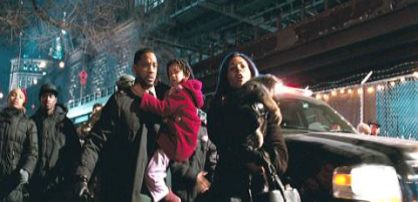
A few more notables
This genre is packed and I’d like to mention a few more of my favourites with brief comments.
‘Wall-E,’ (2008) by Pixar. Though an animated family film, this one actually scores big. No nukes, plagues or bio-toxins – Waste. Add to that, the effects of sedentary humans on spaceships with their eyes glued to video screens losing the ability to walk, or even to look at each other. (This is the story I wish I had written. Fun – Witty – Meaningful.)

‘Planet of the Apes,’ (1963) by Pierre Boulle. Film, (1973) starring Charlton Heston. An absolute classic with time travel and a neat simian twist.
‘Ornyx and Crake,’ (2003) A poignant novel by Margaret Atwood. World destruction a la climate change and consumerism. Credit Ms Atwood with an almost scary imagination. (My highest recommendation.)
‘Childhood’s End,’ (1953) by Arthur C Clarke. If you’ve somehow managed to miss this one, shame on you. (No comment on the plot. Too deep for a one-line rif!)
‘World War Z,’ (2006) by Max Brooks. Film adaptation starring Brad Pitt. (2013) As an ardent opponent of zombies, I admit to having intentionally neglected this novel and film. The inclusion here is merely the façade of impartiality. (Both the book and film received screaming reviews.)
’12 Monkeys,’ (1995) by Terry Gilliam. TV series, (2013 – ) starring Aaron Stanford. World-wide bad-guy released plague with a Time-Travel Twist. (Great – great film and the TV series is a Sy-Fy channel smash.)
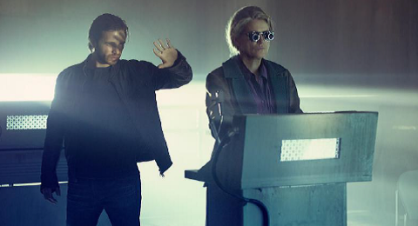
Post-Apocalyptic Science in Science Fiction and Fantasy
Have apocalyptic/post-apocalyptic scenarios been exaggerated in Science Fiction and Fantasy? In this section, I’ll pull the apocalyptic plot device from examples and weigh in the scientific plausibility.
Thermonuclear destruction – What is the probability the Earth would suffer the scale of worldwide destruction as depicted in ‘The Book of Eli,’ ‘The Road,’ or ‘A Canticle for Leibowitz?’

At present, there are approximately 20,500 nuclear warheads in the world. Assuming these devices average in the range of 33,500 Kilotons, (A reasonable estimate) there are enough to not only leave the Earth virtually uninhabitable, if not fully uninhabitable, but to totally destroy Earth’s landmasses.
Certainly to be viewed as a worst-case scenario, but does support the scale of destruction depicted in most post-apocalyptic literature and film.
Worldwide Pandemic – What is the true potential of a worldwide pandemic as depicted in such works as ’12 Monkeys,’ ‘I Am Legend,’ or ‘World War Z?’
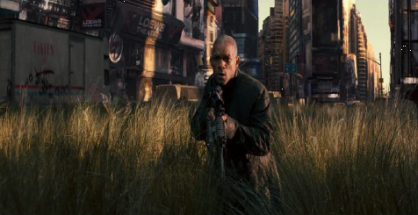
Quoting here from a defence department document declassified in 2009 regarding an influenza pandemic.
‘State, local and tribal jurisdictions will be overwhelmed and unable to provide or ensure the provision of essential commodities and services. A pandemic could also cause significant economic and security ramifications; including large-scale social unrest due to fear of infection or concerns about safety.’
Extrapolating from this, and similar documents by the US Department of Homeland Security, as well as predictions from other countries, yes, the post-apocalyptic scenarios in Sci-Fi are real enough and hardly over dramatized.
Worldwide Zombie Pandemic – What is the potential a rabies-like virus could mutate naturally, or with a little diabolical intervention, thereby transforming people into zombies?
A virus, like rabies, does attach itself to the subject’s DNA and begin self-replication. Thus, even without human intervention, there exists a possibility, albeit minute, that people, once exposed, could become rabid flesh-eating maniacs.

Would it be ‘World War Z’ ‘The Walking Dead,’ or ‘I Am Legend?’ Without some ingenious, though significantly warped, scientist cooking up some elaborate viral concoction, probably not. But there is enough scientific evidence to support, in a way… this thoroughly improbable scenario.
Climate Change – Could Climate Change take on the image of ‘Oryx and Crake,’ ‘The Day After Tomorrow,’ or ‘Breathe?’
A secret report, suppressed by the US defence chiefs, warns that over the next 20-years Climate Change could lead to a global catastrophe costing millions of lives in wars and natural disasters. Major European cities would be sunk beneath rising seas. Britain would become a distant twin to Siberia. Hurricanes would increase in numbers and intensity. Droughts would claim vast regions seriously diminishing the world’s food supply.
Besides the effects of dangerously misguided weather, (Drought – Drastic Temperature fluctuations –Tornadoes – Hurricanes) this one carries with it virtually all other apocalyptic scenarios. War – Social unrest – Economic collapse – Armed conflict amongst the survivors – Certain political leaders seeking to revise their past claims – Other political leaders seeing great potential benefit over those past claims.
Asteroids – Could we follow the dinosaurs?
Are ‘Lucifer’s Hammer’ and ‘Armageddon’ conceivable scenarios? If so, how much destruction would there be, and what post-apocalyptic world would the survivors face?

If a large enough asteroid, say, one with a diameter of 500 km collided with the Earth, the impact would peel the 10 km crust off our planet’s surface. The resultant shock wave, travelling at ‘hyper-sonic’ speeds, would reach all regions of the globe within minutes. Debris from the collision would be blasted into a low-Earth orbit then return destroying the surface of the Earth. A firestorm, resulting from the impact, would circle the globe vaporizing all life on the planet.
Not a pretty scenario.
On a smaller scale, the aftermath would be much like that of a full nuclear war but without the fallout.
Societal Decline – Several notable titles come to mind, including, ‘Mad Max,’ ‘1984,’ and ‘Escape from New York.’
This is a difficult one on which to comment as there exists little in the way of noteworthy scientific or mathematical research.
Societies could certainly degrade, becoming harsh and autocratic resulting in civil unrest and disobedience. Lawlessness could undermine authoritarian regimes dividing societies into the blockaded elite and the chaotic, crime-ridden streets.
The one common theory is that this scenario, were it to become manifest, would be localised. A single country consumed in civil war, for instance. For it to consume the globe, the world would need to be under one ruling authority or closely allied authorities.
An AI Takeover – Could the scenarios depicted in ‘The Matrix,’ ‘iRobot,’ ‘Logan’s Run’ or ‘The Terminator’ really take place?

Artificial Intelligence is on the horizon. At this juncture, I do NOT see us abandoning the research in spite of the warnings by such notable figures as Stephen Hawking, Cambridge, Elon Musk, Space X and Tesla Motors, Steve Wozniak, Apple Computers, or Bill Gates, Microsoft.
Whether a worldwide Intelligent Machine controlled society would determine mankind a nuisance and decide to eliminate us, thus creating that post-apocalyptic world, is certainly a worthy and timely debate.
Follow this link to an earlier issue dedicated to Artificial Intelligence for a more in-depth review of the notable pieces in fiction, the science behind AI, and some thoughtful speculation about the future of Synthetic Intelligence. https://temarkauthor.wordpress.com/2017/02/02/artificial-intelligence/
Post-Apocalyptic Speculation
This is where I typically offer my ideas about the topic and hopefully pose enough thought-provoking questions to provoke thought.
With the sheer breadth of this topic, I will offer my speculation a bit differently than I have in the past. I’d like to hypothesize three post-apocalyptic scenarios, I believe, have yet to be explored. Please feel free to write me if I have in fact mused a device already in use, but, for some reason have yet to read or see it.
Genetic Mutation / Infertility – What if infertility rates in women increased naturally – simply due to genetic mutation, as in evolution?
With birth rates falling, and entire regions becoming depopulated, how would the world with a rapidly diminishing population look? How could it function, or even survive?
Would we pour our resources into robotics in an effort to replace the disappearing workforce? Would we resort to growing babies in birthing centres as in Huxley’s ‘Brave New World?’
Would human beings be forced into small, walled-in enclaves as in the Middle Ages merely holding on until the end?
I would be surprised if this one has NOT been explored. This could be a wonderful, albeit grim, post-apocalyptic plot for a thoroughly depressing novel.
Technology – What would happen if we became so reliant upon technology (Wearable AI devices etc) that we actually regressed intellectually – and continued regressing? (Think deeply on this one for a moment.)
What if the AI system eventually found us a nuisance and decided to eliminate us? On the other hand, what if the AI system decided we were better off as we were and decided to disconnect us?
How would we adapt as mere children – uneducated children in adult bodies?
This is a rich concept, one which I’ve actually explored in a book I had published in 2016 titled ‘AHNN.’
The book is presented with abundant humour, permeated with subtle metaphors, and offers a novel view of a society reliant on advanced computer technology and constant connectivity.
There are no schools, as there is no need for schools. Everyone is connected to a massive system of intelligent computers at birth when they receive their first neural implant.
One final speculation – What if something happened to the Gravitational Constant of the universe? Possibly from an accident?
What would happen to the Earth if it moved farther away from the sun? Could we find a way to survive taking up the orbit Mars once held? Or, Jupiter? Saturn?
Gravity causes the Stars to burn by fusing hydrogen atoms under intense gravity into Helium. What if there was a 10% to 20% drop in the intensity of the Sun’s energy?
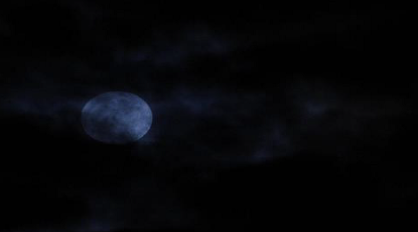
What if gravity fell to a point where the Earth and the other planets were simply let go? The Earth – a Rogue planet, drifting endlessly in space. (This is, in fact, the plot of an early novel I wrote titled ‘Abeyance’ which was entirely rewritten and published as ‘Never a Sun Rises’ in April 2017.
I’ve enjoyed writing this issue of my PLOT DEVICES FOR SCI-FI / FANTASY WRITERS, and hope you’ve been at least modestly enriched and inspired by my exploration of Post-Apocalyptic scenarios in Science Fiction, Fantasy and in real science.
If my work pleases you, consider sharing this with your networking pals, and maybe picking up one of my recently published novels:
‘MANY WORLDS’ (Published – Aug 2022)
‘NEVER CRY IN THE NIGHT’ (Published – Nov 2021)
‘THE REALITY EXCHANGE’ (Published April 2021)
‘THERE WAS A SILENCE’ (Published Feb 2020)
‘AHHN’ (Revised Edition Published – Nov 2017)
E.Mark
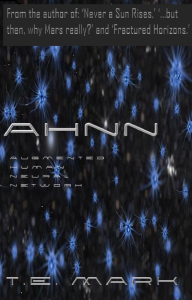
I think that to be scary, to some extent you have to make the reader think, yes this could happen. Up until Trump vs North Korea, I thought that was fairly improbable, and there are reasons why the plagues probably won’t finish off civilisation. My attempts (my ‘Bot War was going into it, Troubles was starting to emerge from it) involved economics. Governments got so deep in debt they could not function, nobody had faith in them, and then terrorists got loose destroying infrastructure so that trade, etc, more or less collapsed and everyone was on their own. Before you laugh, how much of what you need is actually produced within fifty mile of where you live? Then people started stealing what they thought they needed, began shooting each other, etc. What is the betting this could not possibly happen? (Naturally I have left out the spoilers to the stories.)
LikeLiked by 1 person
Thanks for your comment, Ian.
I read your book ‘Bot War’ and thoroughly enjoyed your creative approach.
Your end of the world scenario was thought-provoking in several ways. I specifically liked the detail
you wrote into our manuscript – the inner workings of the stock markets etc.
Again, thanks for dropping a comment.
Mark
LikeLiked by 2 people
Title: The NOC (Natural occurring citizens) by Mitchell Manuel, Levin, New Zealand.
in 2020, an Australian company releases to the Rich, an enhanced protein manufactured from food which prolongs life by 20 percent and when SpaceX tests this supposed longevity cure for Astronauts against radiation sickness and after returning from a Jupiter test flight, the crew’s DNA mutates to non senescence which the Rich eagerly desires but comes with three caveats: 1. You cannot learn past your present intelligence quota, 2. Your emotional quota plateaus, 3. Cannot reproduce. The Rich distribute this mutated serum to their own covering four generations while establishing their own colony on Jupiter. Realizing their limitations with stunted growth intellectually, emotionally and inability to breed, decide to invite the poor to their new off world colony in order to provide extended senescence experiences and emotions as ‘aging citizens’ to fulfill this void. As each of the four generations of Poor are exterminated as they reach their projected aged maxim, the truth of this finds its way back to Earth. The Poor fearing extermination and the Rich dreading a limited resource as the maxim approaches decide on a compromise, the four generations of Poor are offered the original 20 percent serum and the NOC.
Please have a go at how this might end….
LikeLiked by 2 people
Neat plot. Love the creativity….
I’m stretched today with a school assignment and writing but will consider an ending scenario later in the week.
I like stories with strong social statements.
Q) How far along are you with this book? This is definitely a piece I will want to read and review at my book
review website. http://mthomasmark.wordpress.com
I try to do 2-books each month for fellow authors. I then post my reviews all over Social Media land.
I’ll give that ending some thought and get back to you.
Thanks, Mitchell. This is definitely a story for me…
TE Mark
LikeLiked by 1 person
Awesome. Please do, will look forward to this, Mitch
LikeLiked by 1 person
Some ideas and back story.
Some of the pro senescence experiences the Jupiter colony want to view, which they personally cannot suffer themselves,: the aging and infirm, disease in humans, heightened senses like fear and happiness, dreams.
Some will also be viewed in museums and zoos behind class cages. They will be well feed and taken care of but will never understand their loneliness or despair, they are incapable of the NOC experience, almost like a vampire seeing humans as something to feed off but feel no remorse because after-all, if you’re immortal, what does mortality mean to one.
The Jupiter colony are like the planarian worms, they grow new cells and they can regenerate using their telomerase and stay immortal.
A further plot point is: if a colonist is accidentally split in two, they can regenerate and create two from the same cell but this is forbidden and extreme measures are taken to eradicate any one of the pair which gives rise to an elite military unit of assassins made up of NOC.
The colonists can mate, but do not lust, but are infertile and are also asexual and hermaphrodites after a single year.
If a Colonist is lost for some reason, each generation has a cell stored in a cryogenic chamber which can grow into the person being replaced.
Each Jupiter year the colonists perform a process called, Derveet (from Dervish) where they literally spin to shake off their waste product accumulated for the year.
LikeLiked by 2 people
T.E Mark. Just finished my sci-fi trilogy of screenplays. Working on the last installment. All the best..
LikeLiked by 2 people
Thanks for the note, Mitchell.
Good luck with your project.
TE Mark
LikeLiked by 1 person
Once again, very engaging, TE. I do like the natural disaster apocalypse movies like “The Day after Tomorrow.” I will admit that I am getting burnt out on the whole zombie phenomenon. It is getting tired. I am also becoming weary with the contagion scenario as well. It seems to me these conventions are becoming safe explanations for the dystopian future.
LikeLiked by 2 people
Hi Susan, Thanks.
I’m with you about the Zombies. I miss the attraction.
The post-apocalyptic scenario stimulates something in people that, I believe, is unusual. I actually believe
people have a subtle desire to see it happen, in one form or another. Like wanting to be sick when you were a kid so you could stay home from school. Or, wanting
a major blizzard to shut everything down. Or, trotting out after a good earthquake to chit-chat with neighbours. (Everyone seems a bit too excited about it, you know?)
It’s like, inside we’re longing for a different reality. Something new. ‘Wow! No going to school or work. No bills. No rules, just survival.’ Granted, it’s psychotic,
but there is something there. I’ve actually felt it myself.
Again, thanks for your thoughtful and supportive comments.
TE
PS: I also agree with you about the plague / virus / bio-whatever scenario. ‘Enough, dude, let’s get some creativity going.’ (Oh, also – The Day After Tomorrow was a super flick!)
LikeLiked by 2 people
In no way shape or form was TDAT realistic in terms of how quickly the climate change happened but I did enjoy it.
Maybe we are fascinated by the apocalypse like we are intrigued with disasters.
LikeLiked by 2 people
Agreed. The Day After Tomorrow was Hollywood reality, hardly real reality. But, like you, I had fun.
I also agree with your second statement. We ARE intrigued with disasters. Thus, our attraction to the apocalyptic
yarn.
Take care.
PS: How’s ch 2 coming?
LikeLiked by 2 people
Chap 2 is taking off. Hoping to have next installment in March. Thanks for asking!
LikeLiked by 2 people
You’re welcome. Looking forward to it!
LikeLiked by 2 people
I have to confess, post-apocalyptic scenarios are close to my heart as a sub-genre of science fiction. I wouldn’t want to experience such an event (who would?), but for a writer, the how, why, when and what of post-apocalyptic tales is a veritable feast of motivations, cause, effect, and so on.
As T.E. points out, post-apocalyptic scenarios come in many forms, from grisly near-total annihilation of everything we hold dear (not my favourite, it has to be said – I prefer there to be at least some semblance of recognisable society in the stories I write. Or maybe I’m just a little lazy…) to more pernicious dangers – global warming, genetic instability, alien viruses, crop failure… to name a few. There are so many variables which could/might trigger the eventual extinction of the human race on Earth… never mind the possibilities in outer space (where, of course, no-one can hear you scream). It can be hard to pick one. I find that my scenarios are often prompted by something I’ve seen on the news, or read online, and preferably with a grounding in solid fact/scientific evidence – even if I then take it on a very long walk!
My first novel, ‘The Methuselah Paradox’, looked at what might happen if humanity was given an opportunity, en masse, to live a vastly extended life. There were many ways the story could have gone, and I hope the one I chose is an interesting variation. One of the projects I’m working on at the moment (‘Minding Mama’) looks at the effect on human society of a badly depleted ozone layer. That’s not all, of course… but it’s a WiP, so of course I’m not going to give too much away!
T.E. has given me much more food for thought, and reminded me of a good few books and films I enjoyed in my teens – and more recently. As writers, we always hope to produce the next best-seller, but if there’s one thing that blogs like T.E. Mark’s tell us, it is that human imagination is both a wonderful and a terrifying thing, and sometimes even the not-so-good realisations come from a great idea; ideas that are always ripe for re-interpretation. Every premise has a thousand spin-offs!
After writing gloom-laded scenarios, I often feel the need to reconnect with the fun part of having an over-active imagination. YouTube has an endless supply of cats/dogs/animals/babies doing hilarious things – balm for the post-apocalyptic writerly mind…. in fact, after reading this blog, I may have to go and sample some moggy mirth…
Thanks, as always, for sharing your thoughts, T.E.
LikeLiked by 2 people
Thanks, EJ, for your supportive comments. As I said in my post, I actually like the post-apocalyptic genre. (Lit and Film) I also noted something above in another response I believe you may find interesting. That being, that I believe people actually have an inherent, albeit somewhat psychotic, fantasy desire to see it happen. To experience that total melt-down of normalcy.
Maybe, if I’m even part correct here, we see ourselves caught in the rut of a common, seemingly endless, seldom changing existence. And, the picture of us as assault-rifle-carrying (I’m a total anti-weapons guy so don’t get the wrong impression) survivalists with no job or school to clock into in the morn. Or bills to pay. Or investments to watch. Or dishes to wash. Etc Etc. seems, I think, kind of cool to the average reader/viewer. I know I’ve felt it. It’s maybe a remnant from childhood, where you can role play anything you want, then at 5PM stand up and say: ‘OK guys, gotta go eat or mum will be pissed.’
Maybe as writers/readers we have more active imaginations. Maybe this isn’t something EVERYONE shares, but we do. I’m not sure.
But I certainly liked your comment and hope to read Minding Mama. Depleted Ozone layer, eh? I have not read every post-apocalyptic novel (Yet) but, I can’t say I’ve read one with that scenario as the theme. GOOD FOR YOU! Something new! I’m looking forward to reading and reviewing it.
Take care!
TE
LikeLiked by 1 person
Great post. I’m not a fan of either the zombie or post apocalypse craze. At its heart is a hopelessness that I can’t get fully into.
With that said…I still love 12 Monkeys, both the original movie and current TV series. I think one of the best movies I’ve seen in this genre is Children of Men . Humans can no longer reproduce and the world descends into chaos. I forgot why humans are infertile in the future in this movie. Was a plague or something?
One could argue that H. G. Wells’ The Time Machine is a post-apocalypse novel, the Time Traveler is giving a warning of an intellectual apocalypse to come.
Between climate change, super viruses, thinking & learning AI, nuclear war/disasters, income and social inequality, lack of fresh/clean water situations, terrorism, etc. today’s writers and Hollywood have no shortage of scenarios to chose from for their next post apocalyptic tale.
LikeLiked by 3 people
Thanks, Stacy, I’m glad you enjoyed my newest issue. I happen to like the ‘post-apocalypse’ genre, but like you, I can’t really get with the ‘Zombie’ craze.
As for ‘The Time Machine,’ definitely! I wanted to add that and ‘War of the Worlds’ but I’m still struggling with the length of my
posts. I had probably 20 – 30 other books I could have added and maybe 12 – 15 films.
I’m going to have to research ‘Children of Men,’ and I’m glad you dropped the name. At the end of my post I added three possible scenarios
for a ‘post-apocalyptic’ scenario that wasn’t war, climate change, or plague, one being an unidentified, possibly just evolutionary, rise in infertility rates leading to a depopulated world. I also suggested that I was almost certain SOMEONE would have landed on that scenario besides me, but I may just have missed it.
Thanks for dropping your comment.
Now I’ll do a little google search and read the plot scenario.
Take care!
TE
LikeLiked by 2 people
well done Mark, this article made my day !
LikeLiked by 2 people
Thank you, Azita. Supportive comments like that make the writing adventure worthwhile.
Mark
LikeLiked by 1 person